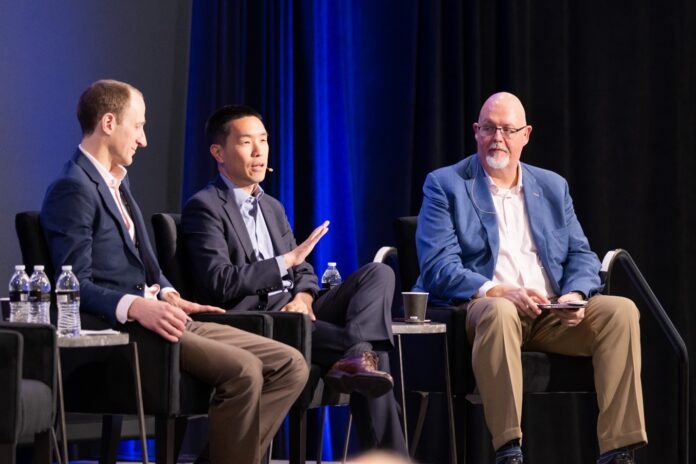Anyone who is familiar with the workings of their own GPS knows that there are often two different ways to get to the same destination. Stanley Chen, CEO of Telamon Corporation, and Randall Friedman, former president and CEO of Lebhar-Friedman, both believe in the board’s responsibility to help develop the CEO. However, human nature dictates that two distinct individuals have different ways of thinking about things. And that is what accounts for Chen’s and Friedman’s varying approach to arriving at the same locale.
When asked if when he served as CEO he actively looked for development, Friedman says, “The simple answer is ‘No.’” And the reason for that is not complicated: When thrust into a position of power, who ever really wants to admit that they don’t have the answers?
“I think if you ask most CEOs, they’re happy and excited and want to run the business,” says Friedman, who is a director of TransAct Technologies, president and chief operating officer of JohnWallStreet Inc. and farmer in chief of Sherrog Hops. “But when you talk about development, it makes it sound like I have deficiencies and most people don’t want to admit that, even though most of us know that we have deficiencies.”
As a result, Friedman believes that the best approach for a board looking to develop its CEO may not be to approach it in terms of skills that the CEO does not have, but rather “the changing nature of the exterior world.”
Says Friedman, “We all admit that things are changing. Things tomorrow won’t be the same. So, what is the CEO doing to help prepare themselves for tomorrow?”
Everyone has heard the saying, “It’s lonely at the top.” According to Friedman, that is one of the reasons why it is so difficult for CEOs to have the dialogue and counsel that leads to growth.
“There’s no one else in the organization that you can speak to that is on your level. You’re not going to talk to the people that report to you about your problems if they’re at all sensitive or reveal deficiencies in your own areas.”
That is why he points to CEO peer groups as “a huge resource that should be encouraged” by boards.
“Join whatever peer groups you can join. It’s amazing to talk to your peers. Can boards formalize that? Maybe yes, maybe no. But you definitely should be encouraging that and forcing the CEO out of their seat to go talk to other people on a regular basis.”
So, back to that diversion of philosophies: During their session, upon hearing Friedman’s answer, Chen said “You started off your answer with ‘Simple answer, no.’ I thought you were going to say ‘Simple answer, yes.’” Chen’s reasoning for the difference?
“When I took over the business, I was 35, and I was in no way qualified to be the CEO.”
Chen, who has also served as chief operating officer of the second-generation family business started by his father Albert Chen, says his relative lack of experience at the time of becoming CEO dictated outside guidance and that he welcomed it.
“I think if I had been a board member at that time, I would not have hired myself to be the CEO. We needed someone, probably from the outside, to step in and continue to groom me,” says Chen. “Because at the end of the day, as a family shareholder, this is the precious jewel of the family. We don’t want to mess this up. Because of that, there was a desire for me to say ‘Boy, there’s a lot that I need to learn.’”
In fact, Chen says that the need for him to grow fast on the job is part of what has led Telamon to have such a stellar board, one that was deemed worthy of a Private Company Boards of the Year Award in 2022.
“When I took over, the conversation with my father was, ‘Let’s bring in some additional outside directors. We will have this young and inexperienced CEO, but they can make sure that we’re protecting the family.’”
As is the case with Friedman, Chen cites peer groups as a valuable venue for CEO growth, and when asked if formal or informal development initiatives have been more effective, he chooses the latter, but says that the former can be beneficial as well.
“I probably have learned more from some of the informal channels — being able to sit down and have conversations with a board member, multiple of whom have been CEOs themselves,” says Chen. “But I also think there is a role for structured learning because we all have gaps, weaknesses and deficiencies.”
And if he were to not fill those gaps? Well, as Chen says and believes his board should be able to do, the board’s job is to hire the CEO, but to fire him as well. Yes, even himself.
“I often say that I want my board to, if need be, protect Shareholder Stan from CEO Stan. Those are two different Stans. Sometimes they overlap, but sometimes they have very different interests in mind.”
Two Different Routes to CEO Development
By Bill Hayes
Improving the CEO can often require tact, but the success of the company should be the ultimate goal.



